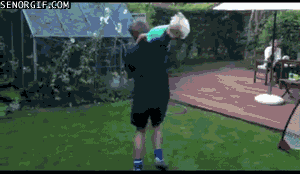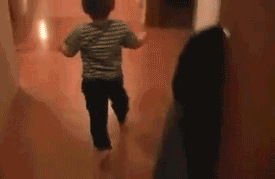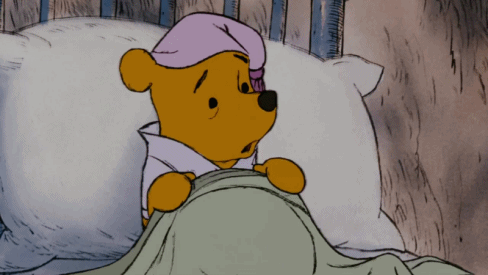![]()
On December 16, 2014 The Express Tribune blogs desk received many submissions from grief stricken people from all over Pakistan. These people wanted to show their solidarity with the families of the victims. They wanted to mourn the deaths of the students and teachers from the Army Public School, who were brutally massacred by the TTP in Peshawar.
Due to shortage of space, we were unable to accommodate many, but we understood that this was a traumatic event in which every Pakistani’s protest should be recorded. So, this post was created as a window for people to come together and participate in this protest against terrorism. It was created for people to be able to voice their shock, protest, grief and condolences.
The following are 10 entries we received that we thought summed up the feelings of most of us out there; while these only represent a small amount of the actual submissions we received, they convey the same message – that of grief, sorrow and a nation plunged in misery.
Join us in recording our protest against terrorism. Join us in standing strong with the families of the victims. Join us in putting up a united front. Join us in being Pakistani.
![]() [caption id="" align="alignnone" width="450"]
[caption id="" align="alignnone" width="450"]![]() RIP Asad Aziz. Photo: Facebook[/caption]
The Diary of Sheroo from Peshawar
I have surpassed all the ordeals of my life, the unwavering pangs of anxiety which loitered around me a day before the exams have somehow receded. The pen that I am still holding is drenched with red, it writes in red too. I need to make Ms Asma proud but she is nowhere to be seen. But I do see Ali, Shahrukh and Habib in the near distance; trying to ensconce themselves into the laps of their numb parents.
I had always loved writing and Ms Asma adored my brief essays. But the mere absence of paper at this very moment has insisted me to grapple the piece of a torn pocket from Gul’s shirt. It has my school’s monogram similar to the one I made in my notebook, a little asymmetrical.
The last time this pen touched paper, I vividly remember it poured blue ink. Today, it bears red and it is a testament of the efforts I should be exerting as per Ammi’s wishes,
RIP Asad Aziz. Photo: Facebook[/caption]
The Diary of Sheroo from Peshawar
I have surpassed all the ordeals of my life, the unwavering pangs of anxiety which loitered around me a day before the exams have somehow receded. The pen that I am still holding is drenched with red, it writes in red too. I need to make Ms Asma proud but she is nowhere to be seen. But I do see Ali, Shahrukh and Habib in the near distance; trying to ensconce themselves into the laps of their numb parents.
I had always loved writing and Ms Asma adored my brief essays. But the mere absence of paper at this very moment has insisted me to grapple the piece of a torn pocket from Gul’s shirt. It has my school’s monogram similar to the one I made in my notebook, a little asymmetrical.
The last time this pen touched paper, I vividly remember it poured blue ink. Today, it bears red and it is a testament of the efforts I should be exerting as per Ammi’s wishes,
“Dil laga ker kaam kia kero”
(Work hard with all your heart)
Therefore, I am writing this today, to my parents, with all my heart and soul.
Something sharp and uncannily metal-like entered my ravenous cave of a stomach, piercing it open. All the while I swayed in the day dreams of the sandwiches I forgot at the dining table this morning. I was
rooted to the ground, mortified to death and shut my eyes while hot tears seared my face. It has happened more times than I can count; I usually forget my lunchbox but never have I cried. But this day is different.
As I open my eyes, a blinding iridescent light whispers in my ears,
“You will never die, you are a martyr.”
Now you explain to me – Ms Asma taught us about the martyrs in the battlefield last year in Grade One. How can I be labelled as one in my classroom? I didn’t know that my classroom was a battlefield too…
Here comes my mother. She looks frailer than usual. Mother has been wailing besides the motionless body, clutching the lunchbox I had left on the table. I have been trying to reassure her through the red I am writing with,
“Dear Ma,
I am a martyr. You should be grateful to the veiled maverick who barged in to my class this morning and chose me for the gift that entered my belly.”
Yet she wails and continues repeating,
“Mere Sheroo ka kia kasoor tha?”
(What was my Sheroo’s fault?)
Ma just keeps crying.
![]()
![]()
[caption id="" align="alignnone" width="600"]
![]()
RIP Aimal Khan. Photo: Facebook[/caption]
Animals
With tears streaming down my face,
I write of things we can’t replace.
Humanity, was
killed yesterday,
For the thousandth time, in the thousandth way.
When powers created monsters within,
Why didn’t they ever pause to think?
When rabid dogs begin to grow,
They will bite every
master and foe.
When morning came yesterday, and they awoke,
They left their parents, with love and jokes,
Every soul, a little precious pearl,
Our future hopes, each
boy and girl.
Merrily they rode to make futures bright,
Educating their minds, lighting the night.
Who knew some beasts wanted their souls,
Those cowards who live like rats and moles.
How much lower can you get?
You take lives with no regret.
Butchery of every kind and type,
You sacrificed for Satan our
youth so ripe,
But you forget that there’s a God
Who’s marked your doom with a branding rod.
You go to extremes, amusing devils around,
In life and death to miseries you’re bound.
And now whenever you return to Him,
Each second of eternity will be grim,
You’ll burn like torches with fire so strong
Your cries of help will be sweet songs,
Those parents whom of kids you
deprive,
Will curse your existence till they are alive.
Each heart bleeds for the loss of flowers,
Those shining faces who laughed for hours.
I hope they get to heaven soon,
No fear of wolves preying at noon.
We say we are free but today we know,
Behind this facade let’s throw.
We can’t be free till we kill all worms.
Each virus we bred, all living germs.
Let’s realise we are the reason we fell,
Those innocent lives request us to tell,
Their stories in the red light of truth,
That pain of slaughter, nothing can soothe.
Their bravery gives us hope and chance.
Let’s stand together on this one stance.
Let’s not blame God, the
world or fate.
Let’s amend ourselves before it’s too late.
Because of our mistakes we lost those lives.
Let’s not give beasts anymore knives.
![]()
![]() I wasn’t scared
As always, I woke up early in the morning, resisting the alarm that was parting me from my warm bed. I complained about not getting enough sleep but when I opened my sleepy eyes, I realised just how glorious the morning looked.
I wasn’t scared
As always, I woke up early in the morning, resisting the alarm that was parting me from my warm bed. I complained about not getting enough sleep but when I opened my sleepy eyes, I realised just how glorious the morning looked.
My mama’s gorgeous face marked the beginning of my day. What a beautiful day, I thought. She rushed here and there to make sure I get everything I would need in school today. While combing my hair, she gave me a kiss on the forehead and prayed for my success. She forgot to pray for my well-being that day, I guess.
My friends, my gang, waited for my arrival in the school bus. As always, we began playing and laughing, and the bus driver, as usual, turned around to yell at us to keep it down and not distract him. He told us to sit quietly with our seatbelts on because the traffic was dangerous. But we believe he secretly enjoyed our chattering, so sat down, but we didn’t stop – not until we got to school anyway.
In school, more friends joined in and the laughter continued. It doesn’t take too much to make us happy. We love our friends, our parents, our siblings, our teachers and our school. Especially our friend – so you can imagine that laughter was an inevitable accompaniment. But today, our laughter was disturbed by frightening sounds. Kind of like the nightmare I had. You remember that, mama? My nightmare, the one I woke you and baba up for in the middle of the night? The sound was like that. My heart started racing and all I could see before me now was
monsters. They looked angry and they didn’t want us to laugh. They wouldn’t have used those machines in their hands to hurt us if they liked laughter. I was very scared. We were all very scared.
I stopped laughing so they would stop frightening me. I hid under my school bench. We were known as the heroes of our school, my friends and I. But today I was scared of my school. And that sound. I stopped moving so they wouldn’t notice. But they did. And then they came for me. I tried to scramble away, I kicked and punched, I cried and wailed but they held me down. And then… and then I wasn’t scared anymore. They put the scary machine straight on my heart but I wasn’t scared. I heard that frightening sound again, but I wasn’t scared. Pain seared through my body, but I wasn’t scared.
And I left a mark on them. It is a
red mark on both their hands. Now you will be able to identify them
. I am safe, don’t worry about me. And I know you must be asking yourselves some questions again and again like,
“Why did they do all this? What did they actually achieve?”
But I have figured it all out. They tried to scare us. But we weren’t scared. You don’t be scared either. Just don’t be scared. That’s all they want.
![]()
![]()
[caption id="" align="alignnone" width="533"]
![]()
RIP Hamza Ali Kakar. Photo: Facebook[/caption]
One of the 141
Today, she wakes up to silence. It’s 6:45am and this is usually the most frenzied part of the day. Between packing lunch to tying Farhan’s laces and the search for his misplaced copies; she did not have a minute to waste. But today, it is different. There is no frenzy; no anticipation of the van driver honking at the gate; no morning rush to get Farhan ready to be on time. Farhan was her son, her first born.
Farhan is dead;
one of the 141.
Today, he wakes up to shock. Farhan was his class fellow; his play mate and his best friend. They had shared countless memorable moments together. From playing cricket to exchanging notes in the classroom to running around ringing neighbours’ bells; a flood of memories came to haunt him and he knew these memories would haunt him for the rest of his life. He was spared because he was in the bathroom while Farhan was attending the training at the auditorium. He wishes he was dead too. He wishes he was with Farhan. He wishes that he does not have to go to school again; he wishes he does not have to see that empty desk beside him.
Farhan is dead; one of the 141.
Today, he wakes up to anguish. This is the time Farhan used to come to his room to bid him goodbye. He would hand him over his daily pocket money. It was Farhan’s secret stash; the one he got daily from him, without the knowledge of his parents. Farhan was his grandson; the eldest and most special. There is no one to ride on his shoulders now; no one left to call him “Dada Jan”, no one to massage his legs at night.
Farhan is dead; one of the 141.
Today, she wakes up to relief. She has been married for over five years but has been unable to conceive. She has prayed; held vigils and pleaded to God to grant her a baby. But today, she wishes her prayers are never heard. She doesn’t want to bring a child into a world which is so utterly
dark and scary; where children are killed while they study; where mothers have to lose their children as ‘collateral damage’. She is Farhan’s neighbour and she is happy for the wish that was never granted.
Farhan is dead; one of the 141.
![]()
![]()
[caption id="" align="alignnone" width="600"]
![]()
RIP Mubeen Shah. Photo: Facebook[/caption]
I bleed a million tears
How many more before they say no more?
How many more before they say we fold?
How long do we wait for this to be over?
How long do we wait for us to be sober?
We lost it, yet we fight, the unknown,
the killers.
We lost it, yet we hope, the sunshine, the rainbows.
The blood that rains, the smoke that prevails,
Is yet to find me, is yet to find you.
How long can we dodge the bullet?
How long can we survive the shelling?
The sorrow of terror is hollow,
Like the hope that we
give and take.
It’s just a matter of luck,
That we are safe, for a few days.
I hear the bombardment, in my head,
Of a thousand exploding thoughts, for those who are dead.
You call them martyr, you call them heroes,
I call them legends from books of the un-dead...
Is God silent or teaching us a lesson?
Maybe it’s Satan, in for a
bloodbath.
Wake up before Satan gets to your homeland,
For him, no religion is holy neither is any land.
Muslims, Christians, Jews, Hindus, all bleed the same,
And so do those who are killing them in vain.
Then how can you choose by
skin colour,
Who is to die, who is to suffer?
Every time I see them die, I cry a thousand words,
I bleed a million tears, yet I am insensitive to the pain I feel.
It’s worse than the massacre itself, for I fear an
absence,
Of tears and words and blood, the next time I see them die.
Stop it all, for we have nothing more to offer.
Stop it all, for we all are human.
Stop it all, for we all are children of God.
Stop it all, for we all are broken.
Stop it all, for we all are broken.
![]()
![]()
[caption id="" align="alignnone" width="600"]
![]()
RIP Umer Hayat. Photo: Facebook[/caption]
I dreamt of a future
I dreamt of a future when I was eight,
I dream of one now, still the same.
Where there is one God and only one,
And
in His name we don’t kill and burn,
Where for every child there is a home,
A place to live, a place to learn.
Where children are safe from the evils of today,
Murder, terror, rape and dismay.
The day we’re not afraid anymore,
Of everything in our hearts and outside our doors.
A time we see men as men,
And learn to live,
to coexist again.
When women are not objectified,
Hurt, sold and sacrificed.
I dreamt of a future when I was eight,
Innocent, naïve, I bowed and I prayed.
![]()
![]() An ode to the victims of Peshawar
The sun was fine, with a good shine.
It was another day, which I thought would simply pass away.
An ode to the victims of Peshawar
The sun was fine, with a good shine.
It was another day, which I thought would simply pass away.
I left my house, dressed for school,
Not to forget, I was my parents jewel.
I met my mates; we were having a good time.
After all, we were all in our prime.
With plans to enjoy and have some fun,
Who knew, how fast this time would run.
Suddenly, things took a steep turn,
And everything around us began to burn.
All I could hear were gun shots being fired,
What animal had all this conspired?
As world closed in, things got blurred,
No one knew what hell had occurred.
We ran around, trying to find places to hide,
But there was no one who could guide.
My friends, my colleagues and my mates,
Had already started facing their cruel fates.
They lay there dead, in the pool of their own blood,
Never had I imagined such a red flood.
I hid behind a desk with my eyes closed,
But soon a devil with black boots approached.
He found me alive and then he stared,
I swear to God, never had I been so scared.
Then there was another noise,
And a sudden cold in my spine took away all the joys.
I could feel the pain but my mind was in chaos,
As I thought of my parents back at the house.
I fell down and there I lied,
Was there anything that I could have tried?
Things got dark and I closed my eyes,
I guess there would be no goodbyes.
The security forces and the rescue teams,
Would soon come in with their fancy beams.
They will fight the devils with rage and hate,
But sadly, for me, it is too late.
The sun has set, and now people would cry,
But did I really have to die?
I came to school to be empowered to rule,
But boy, was I a fool.
![]()
![]()
[caption id="" align="alignnone" width="600"]
![]()
RIP Muhammad Yaseen. Photo: Facebook[/caption]
Because I went to school
I am dead today,
Because I went to school,
Where I chose a book and read.
I am dead today,
Because I went to school,
Where I played with a friend.
I am dead today,
Because I went to school,
Where I giggled my face red.
I am dead today,
Because I went to school,
Without knowing that it was my end.
I am dead today,
Because I went to school,
In this land, where you now stand.
![]()
![]() If only we could…
No words, or any act, can describe the devastation that our nation is going through. The loss is irreversible, and the pain too irremediable. But we can all contribute a little to the cause in memory of those little souls.
If only we could…
No words, or any act, can describe the devastation that our nation is going through. The loss is irreversible, and the pain too irremediable. But we can all contribute a little to the cause in memory of those little souls.
These are some of the words I wrote in an effort to capture my sentiments, after yesterday’s horrific incident. Just a gesture through which I could contribute… a little.
If words could bleed,
If thoughts could impede,
If only our souls could do justice to the creed.
If our agony could calm the sinister wave,
If our teardrops could replace the blood they crave,
If only our conscience could be less shallow, less concave.
If we could gag our ears to the sounds of the cry,
If we could muffle our hearts in order to defy,
If only we could hear the pain in that last goodbye.
If those screams could ape,
If the shade, the desolation could escape,
If only we could see those faces beneath a doused drape.
If we could hold that face in our hands,
If we could let lose all faith, all strands,
If only we could know how it feels to let go of the last hope that stands.
If we could see the teardrops getting dried,
If we could realise how much she waited, with arms open wide,
If only we could know how much she disproved and denied.
If we could smell his blooming blood,
If we could see how fears rouse, and nightmares flood,
If only we could know when folds the celestial bud.
If we could see the sun turning red,
If we could save the pearls that fell off the thread,
If only we could know the pain of burying the things that were left unsaid.
And if words could bleed,
If thoughts could impede,
If only and only our souls could do justice to the creed.
![]()
![]()
[caption id="" align="alignnone" width="466"]
![]()
RIP Rafiq Bangash. Photo: Facebook[/caption]
And the sky rained blood...
“Wake up beta, wake up or I’ll tell your dad,” said my mom as she tried her best to wake me up for school.
Handing me over to my father was a sign of her giving up on me. My father deals with matters according to his mood and he isn’t a morning person. I didn’t want to take this risk early in the morning so I rubbed the sleep out of my eyes and made an extra effort to leave the comfort of my warm bed on a chilly December morning.
As I walked out of my room, dressed for school, my mother looked at me lovingly with her big black eyes. I always wondered what struck a chord of happiness within her seeing me in my uniform; I thought my uniform was drab.
And just like every other teenager, I used to ignore that look as much as I could. She kissed me on my forehead and I left for school. I didn’t have breakfast as an ongoing protest for being woken up too early for school.
I reached school ten minutes late. This was a tradition for me in order to avoid the morning prayers. Walking towards my class, I was thinking about the comfort of my bed,
“If only I could have stayed home today”, I thought to myself.
When I reached my class, my teacher informed me that there were to be no lectures today because of a security drill taking place in the auditorium.
“Great!” I thought – sleeping in the auditorium was far more comfortable than sleeping in class.
I was sitting in the auditorium with my eyes shut, trying to sleep. Students from other grades were standing around, chatting away noisily, and disturbing my attempts at sleeping. All of a sudden, there was shouting and screaming, my eyes snapped open and I saw some students locking the auditorium door while others rushed to hide under desks.
Right after, I saw the auditorium door being broken down and men dressed in black rushing into the hall. They began firing. Confused and afraid, I managed to sneak my way under a chair and tried to keep quiet, although I wanted to cry and run home to my parents.
I must’ve pinched myself a million times to make myself realise I wasn’t having a nightmare. Some seconds later I saw one of the men dragging our teacher by her hair and shouting something about vulgarity and shame, and then he set her on fire. She burnt to death in front of my eyes; then they did something I never expected, they told students to recite the
kalma and they began shooting them – my friends, my classmates.
I shut my eyes, fearing I would be next. As soon as I closed my eyes, I was in my happy place, I saw my mother’s face, her big black eyes looking at me with all the love in the world, telling me to keep myself together, to pray to Allah (SWT)for forgiveness and to never lose hope.
I began feeling numb in my legs; I was shot, probably when the terrorists were entering the hall. I was happy yet sad. Happy because this torturous ordeal would end soon for me and sad because life was over too soon for me. I tried my best to not think about my mother at that time because I knew she wouldn’t want to see me in this state. So I just closed my eyes and starting humming the Morning Prayer that I’d dreaded so much all my life.
“Lub pay aati hai dua bann kay tamanna meri,
Zindagi shamma ki soorat hou khudaya meri,
Door dunya ka mere damm se andhera hojaye,
Har jaga mere chamaknay say ujala hojaye”
(From the lips comes a prayer in the form of a desire
My life should emulate a candle, Oh God.
Lift the worldly darkness due to my efforts.
Every place should be enlightened by my light)
![]()
![]()
 Photo: Sameera Rashid[/caption]
On a winding road from the Chakdara to Mingora, people are seen crossing the clear waters of river Swat, on makeshift bridges, and plum trees with delicate pink flowers bloom on the roadside orchids.
[caption id="" align="alignnone" width="590"]
Photo: Sameera Rashid[/caption]
On a winding road from the Chakdara to Mingora, people are seen crossing the clear waters of river Swat, on makeshift bridges, and plum trees with delicate pink flowers bloom on the roadside orchids.
[caption id="" align="alignnone" width="590"] Photo: Sameera Rashid[/caption]
Not only does Swat cast its spell on visitors with its wide towering mountains, whose peaks are half-hidden by curls of mists, but also another element of surprise is the mushroom growth of schools, both for girls and boys, in the Swat valley.
[caption id="" align="alignnone" width="590"]
Photo: Sameera Rashid[/caption]
Not only does Swat cast its spell on visitors with its wide towering mountains, whose peaks are half-hidden by curls of mists, but also another element of surprise is the mushroom growth of schools, both for girls and boys, in the Swat valley.
[caption id="" align="alignnone" width="590"] Photo: Sameera Rashid[/caption]
The construction boom of schools in Swat belies the image of a war-ravaged region, infested with militants, where schools are routinely bombed by the Taliban militants, and where school girls are shot for speaking about female education. But the truth is that in the aftermath of the military operation, which was launched in 2009 to reclaim the area from militants, the people of Swat are seen eagerly sending their children, including girls, to the English medium schools being built with generous foreign donor funds.
To understand what has triggered the school boom in Swat, I visited Fiza Ghat Sangota Presentation Convent, which had been blown to pieces in 2008 by Taliban militants for providing western education to girls and for acting as a centre of Christianity.
[caption id="" align="alignnone" width="600"]
Photo: Sameera Rashid[/caption]
The construction boom of schools in Swat belies the image of a war-ravaged region, infested with militants, where schools are routinely bombed by the Taliban militants, and where school girls are shot for speaking about female education. But the truth is that in the aftermath of the military operation, which was launched in 2009 to reclaim the area from militants, the people of Swat are seen eagerly sending their children, including girls, to the English medium schools being built with generous foreign donor funds.
To understand what has triggered the school boom in Swat, I visited Fiza Ghat Sangota Presentation Convent, which had been blown to pieces in 2008 by Taliban militants for providing western education to girls and for acting as a centre of Christianity.
[caption id="" align="alignnone" width="600"] Photo: Sameera Rashid[/caption]
After the partial reconstruction work, the school was re-opened in 2012. Some parts of the school, however, such as the gymnasium and auditorium are still under construction. As I took round of the school, beautiful girls, smartly dressed in their uniforms, with their hair neatly tied in ponytails, sang poems, in Urdu and English, with full gusto and enthusiasm. The younger girls synchronised their hand movements animatedly to convey the meaning of the poems.
The students of the middle and senior sections were perfectly fluent in English. The school principal, Sister Greta Gill, explained that when the girls are admitted in the nursery section, they can only converse in Pashto, but gradually, they become fluent in both Urdu and English.
[caption id="" align="alignnone" width="337"]
Photo: Sameera Rashid[/caption]
After the partial reconstruction work, the school was re-opened in 2012. Some parts of the school, however, such as the gymnasium and auditorium are still under construction. As I took round of the school, beautiful girls, smartly dressed in their uniforms, with their hair neatly tied in ponytails, sang poems, in Urdu and English, with full gusto and enthusiasm. The younger girls synchronised their hand movements animatedly to convey the meaning of the poems.
The students of the middle and senior sections were perfectly fluent in English. The school principal, Sister Greta Gill, explained that when the girls are admitted in the nursery section, they can only converse in Pashto, but gradually, they become fluent in both Urdu and English.
[caption id="" align="alignnone" width="337"] Photo: Sameera Rashid[/caption]
The classrooms were visually pleasing and tastefully decorated with artwork, maps, murals, stuffed toys and models of stars, comets and planets. The windows were not draped with curtains, as is the practice in all schools, and you could view the misty clouds hanging low over mountain peaks right outside the class windows.
[caption id="" align="alignnone" width="600"]
Photo: Sameera Rashid[/caption]
The classrooms were visually pleasing and tastefully decorated with artwork, maps, murals, stuffed toys and models of stars, comets and planets. The windows were not draped with curtains, as is the practice in all schools, and you could view the misty clouds hanging low over mountain peaks right outside the class windows.
[caption id="" align="alignnone" width="600"] Photo: Sameera Rashid[/caption]
When I asked the girls in ninth grade about their career aspirations, all of them replied in a chorus that they wanted to become doctors. However, as I prodded a little more, three girls added, after some hesitation that, they want to become army officers, and one chipped in, to my utter surprise that, she wished to become a cricketer like Shahid Afridi. So, apart from the conventional vocation of medicine, some girls were also striving to enter male-dominated professions.
Then, I put another question to the class, I asked if they liked Malala Yousafzai and, surprisingly, the class echoed with a resounding
Photo: Sameera Rashid[/caption]
When I asked the girls in ninth grade about their career aspirations, all of them replied in a chorus that they wanted to become doctors. However, as I prodded a little more, three girls added, after some hesitation that, they want to become army officers, and one chipped in, to my utter surprise that, she wished to become a cricketer like Shahid Afridi. So, apart from the conventional vocation of medicine, some girls were also striving to enter male-dominated professions.
Then, I put another question to the class, I asked if they liked Malala Yousafzai and, surprisingly, the class echoed with a resounding
 Photo: Sameera Rashid[/caption]
Then I asked them to explain why they felt this way about Malala – a daughter of the soil and a global symbol of resistance to Taliban tyranny and misogyny.
Photo: Sameera Rashid[/caption]
Then I asked them to explain why they felt this way about Malala – a daughter of the soil and a global symbol of resistance to Taliban tyranny and misogyny.

 Photo: Giphy[/caption]
2. Lessons in Physics: All balls, when are thrown upwards towards the ceiling, bounce back. Except the play dough ball. And the second play dough ball. And the third one too.
[caption id="" align="alignnone" width="320"]
Photo: Giphy[/caption]
2. Lessons in Physics: All balls, when are thrown upwards towards the ceiling, bounce back. Except the play dough ball. And the second play dough ball. And the third one too.
[caption id="" align="alignnone" width="320"] Photo: Tumblr[/caption]
3. If you can’t break into an incurable, contagious and
Photo: Tumblr[/caption]
3. If you can’t break into an incurable, contagious and  Photo: Mashable[/caption]
Photo: Mashable[/caption]
 Photo: Neogaf[/caption]
[caption id="" align="alignnone" width="200"]
Photo: Neogaf[/caption]
[caption id="" align="alignnone" width="200"] Photo: Neogaf[/caption]
5. Let the older kids negotiate snacks, junk food, parties and what not. Just use that time to grab whatever spoils they’ve left unattended. Once they’ve negotiated, just demand your share and both ends shall be secured.
[caption id="" align="alignnone" width="400"]
Photo: Neogaf[/caption]
5. Let the older kids negotiate snacks, junk food, parties and what not. Just use that time to grab whatever spoils they’ve left unattended. Once they’ve negotiated, just demand your share and both ends shall be secured.
[caption id="" align="alignnone" width="400"] Photo: tumblr[/caption]
6. In times of parent trouble, head straight for the grandmother’s room, right under the quilt - stay there for as long as possible and you’re safe!
[caption id="" align="alignnone" width="200"]
Photo: tumblr[/caption]
6. In times of parent trouble, head straight for the grandmother’s room, right under the quilt - stay there for as long as possible and you’re safe!
[caption id="" align="alignnone" width="200"] Photo: Tumblr[/caption]
Photo: Tumblr[/caption]
 7. When bored, just shout ‘lizard’ or ‘spider’ and run screaming in whatever direction you want to take the kiddie train to follow. Improvise ahead.
[caption id="" align="alignnone" width="500"]
7. When bored, just shout ‘lizard’ or ‘spider’ and run screaming in whatever direction you want to take the kiddie train to follow. Improvise ahead.
[caption id="" align="alignnone" width="500"] Photo: tumblr[/caption]
[caption id="" align="alignnone" width="325"]
Photo: tumblr[/caption]
[caption id="" align="alignnone" width="325"] Photo: tumblr[/caption]
8. Monsters do exist and it is up to you to take them down whenever, wherever and however.
[caption id="" align="alignnone" width="500"]
Photo: tumblr[/caption]
8. Monsters do exist and it is up to you to take them down whenever, wherever and however.
[caption id="" align="alignnone" width="500"] Photo: Tumblr[/caption]
9. No matter what the adults believe, the world under the dining table and the bed is REAL. Just make sure you have the invisible safe with you for all times when the usual becomes boring.
[caption id="" align="alignnone" width="500"]
Photo: Tumblr[/caption]
9. No matter what the adults believe, the world under the dining table and the bed is REAL. Just make sure you have the invisible safe with you for all times when the usual becomes boring.
[caption id="" align="alignnone" width="500"] Photo: Mashable[/caption]
10. Most importantly, you need to perfect the art of faking a hurtful wail for times when all else fails.
[caption id="" align="alignnone" width="500"]
Photo: Mashable[/caption]
10. Most importantly, you need to perfect the art of faking a hurtful wail for times when all else fails.
[caption id="" align="alignnone" width="500"] Photo: tumblr[/caption]
[caption id="" align="alignnone" width="150"]
Photo: tumblr[/caption]
[caption id="" align="alignnone" width="150"] Photo: Mashable[/caption]
I am not a fan of
Photo: Mashable[/caption]
I am not a fan of  Photo: buzzfeed[/caption]
Of course there are situations where this doesn’t apply and I respect that. However, I can assure you that there is some pleasure (and long term value) in involving the kids, in small ways, in everyday household chores. Besides helping them discover their interests, it also helps
Photo: buzzfeed[/caption]
Of course there are situations where this doesn’t apply and I respect that. However, I can assure you that there is some pleasure (and long term value) in involving the kids, in small ways, in everyday household chores. Besides helping them discover their interests, it also helps  Photo: PBH2[/caption]
For times when the house crystal is at threat of being broken, there is always the option of the faithful outdoor world! Let them dig up the lawn, collect snails, water plants, chase monsters or create their own kingdom – mums are better off looking away lest they find out about the various
Photo: PBH2[/caption]
For times when the house crystal is at threat of being broken, there is always the option of the faithful outdoor world! Let them dig up the lawn, collect snails, water plants, chase monsters or create their own kingdom – mums are better off looking away lest they find out about the various  Photo: PBH2[/caption]
One important mum lesson I learnt is, no guilt for their boredom. In fact, it is perfectly alright to let them
Photo: PBH2[/caption]
One important mum lesson I learnt is, no guilt for their boredom. In fact, it is perfectly alright to let them  Photo: pbh2[/caption]
[caption id="" align="alignnone" width="280"]
Photo: pbh2[/caption]
[caption id="" align="alignnone" width="280"] Photo: pbh2[/caption]
Kids are pretty good at busting boredom – theirs and ours. And what’s not to handle about a little mess; it’s just some soiled shoes, stinky and sweaty hugs anyway! Oh and let’s not forget the cobwebs from under the beds. That is just part of the everyday life of a mother and it won’t last very long so you know how the saying goes, if you can’t beat ‘em’, join ‘em.
[caption id="" align="alignnone" width="298"]
Photo: pbh2[/caption]
Kids are pretty good at busting boredom – theirs and ours. And what’s not to handle about a little mess; it’s just some soiled shoes, stinky and sweaty hugs anyway! Oh and let’s not forget the cobwebs from under the beds. That is just part of the everyday life of a mother and it won’t last very long so you know how the saying goes, if you can’t beat ‘em’, join ‘em.
[caption id="" align="alignnone" width="298"] Photo: Tumblr[/caption]
The final day saver is
Photo: Tumblr[/caption]
The final day saver is  Photo: Pinterest[/caption]
Photo: Pinterest[/caption]




 This blog is part of an interactive campaign called Aao Parhao – Jo Seekha Hai Wo Sekhao (Come Teach – Teach All That You Have Learnt); a Call-to-Action to help change the future of Pakistani children, launched by the Express Media Group in collaboration with Ilm Ideas.
So join us, by reading, watching and telling us what you think. To be part of the Aao Parhao movement, please visit our
This blog is part of an interactive campaign called Aao Parhao – Jo Seekha Hai Wo Sekhao (Come Teach – Teach All That You Have Learnt); a Call-to-Action to help change the future of Pakistani children, launched by the Express Media Group in collaboration with Ilm Ideas.
So join us, by reading, watching and telling us what you think. To be part of the Aao Parhao movement, please visit our 

 [caption id="" align="alignnone" width="450"]
[caption id="" align="alignnone" width="450"] RIP Asad Aziz. Photo: Facebook[/caption]
The Diary of Sheroo from Peshawar
I have surpassed all the ordeals of my life, the unwavering pangs of anxiety which loitered around me a day before the exams have somehow receded. The pen that I am still holding is drenched with red, it writes in red too. I need to make Ms Asma proud but she is nowhere to be seen. But I do see Ali, Shahrukh and Habib in the near distance; trying to ensconce themselves into the laps of their numb parents.
I had always loved writing and Ms Asma adored my brief essays. But the mere absence of paper at this very moment has insisted me to grapple the piece of a torn pocket from
RIP Asad Aziz. Photo: Facebook[/caption]
The Diary of Sheroo from Peshawar
I have surpassed all the ordeals of my life, the unwavering pangs of anxiety which loitered around me a day before the exams have somehow receded. The pen that I am still holding is drenched with red, it writes in red too. I need to make Ms Asma proud but she is nowhere to be seen. But I do see Ali, Shahrukh and Habib in the near distance; trying to ensconce themselves into the laps of their numb parents.
I had always loved writing and Ms Asma adored my brief essays. But the mere absence of paper at this very moment has insisted me to grapple the piece of a torn pocket from 
 RIP Aimal Khan. Photo: Facebook[/caption]
Animals
With tears streaming down my face,
I write of things we can’t replace.
Humanity, was
RIP Aimal Khan. Photo: Facebook[/caption]
Animals
With tears streaming down my face,
I write of things we can’t replace.
Humanity, was 

 RIP Hamza Ali Kakar. Photo: Facebook[/caption]
One of the 141
Today, she wakes up to silence. It’s 6:45am and this is usually the most frenzied part of the day. Between packing lunch to tying Farhan’s laces and the search for his misplaced copies; she did not have a minute to waste. But today, it is different. There is no frenzy; no anticipation of the van driver honking at the gate; no morning rush to get Farhan ready to be on time. Farhan was her son, her first born.
Farhan is dead;
RIP Hamza Ali Kakar. Photo: Facebook[/caption]
One of the 141
Today, she wakes up to silence. It’s 6:45am and this is usually the most frenzied part of the day. Between packing lunch to tying Farhan’s laces and the search for his misplaced copies; she did not have a minute to waste. But today, it is different. There is no frenzy; no anticipation of the van driver honking at the gate; no morning rush to get Farhan ready to be on time. Farhan was her son, her first born.
Farhan is dead; 
 RIP Mubeen Shah. Photo: Facebook[/caption]
I bleed a million tears
How many more before they say
RIP Mubeen Shah. Photo: Facebook[/caption]
I bleed a million tears
How many more before they say 
 RIP Umer Hayat. Photo: Facebook[/caption]
I dreamt of a future
I dreamt of a future when I was eight,
I dream of one now, still the same.
Where there is one God and only one,
And
RIP Umer Hayat. Photo: Facebook[/caption]
I dreamt of a future
I dreamt of a future when I was eight,
I dream of one now, still the same.
Where there is one God and only one,
And 

 RIP Muhammad Yaseen. Photo: Facebook[/caption]
Because I went to school
I am dead today,
Because I went to school,
Where I chose a book and read.
I am dead today,
Because I went to school,
Where I played with a friend.
I am dead today,
Because I went to school,
Where I giggled my face red.
I am dead today,
Because I went to school,
Without knowing that it was my end.
I am dead today,
Because I went to school,
In this land, where you now stand.
RIP Muhammad Yaseen. Photo: Facebook[/caption]
Because I went to school
I am dead today,
Because I went to school,
Where I chose a book and read.
I am dead today,
Because I went to school,
Where I played with a friend.
I am dead today,
Because I went to school,
Where I giggled my face red.
I am dead today,
Because I went to school,
Without knowing that it was my end.
I am dead today,
Because I went to school,
In this land, where you now stand.


 RIP Rafiq Bangash. Photo: Facebook[/caption]
And the sky rained blood...
RIP Rafiq Bangash. Photo: Facebook[/caption]
And the sky rained blood...

 Photo: Shaheer Khan[/caption]
You were always so nice to everyone around you. I keep thinking of how you remembered all of our birthdays and prepared special gifts for us days before they were due. You loved us all equally.
Ami says that the night before that day, you came downstairs just to bid all of us a goodnight.
Maybe you knew you were going to leave us soon...
I remember how you loved playing warfare games, like the
Photo: Shaheer Khan[/caption]
You were always so nice to everyone around you. I keep thinking of how you remembered all of our birthdays and prepared special gifts for us days before they were due. You loved us all equally.
Ami says that the night before that day, you came downstairs just to bid all of us a goodnight.
Maybe you knew you were going to leave us soon...
I remember how you loved playing warfare games, like the  Photo: Shaheer Khan[/caption]
This morning I went to your class. It was empty. There were school bags placed on empty seats and each bag had a page with the name of the owner written on it. Your teacher cried when she showed me your seat. She said that you sat in front of her, in the front row of the class.
She really loved you, Arham. I could tell from the look on her face and from her
Photo: Shaheer Khan[/caption]
This morning I went to your class. It was empty. There were school bags placed on empty seats and each bag had a page with the name of the owner written on it. Your teacher cried when she showed me your seat. She said that you sat in front of her, in the front row of the class.
She really loved you, Arham. I could tell from the look on her face and from her  Photo: Shaheer Khan[/caption]
I know you are happy up there with Allah (SWT). I always pray after Isha prayer and ask Him to let you talk to me in my dreams. Even if it is just once. At least once. You should talk to me. Abu and Ami need it. I need it. We know you are okay, but I just want to hear you say it.
Take care of your friends there. I can imagine how festive the air around Jannat must be right now, I am sure you lit up the sky with your presence. Allah (SWT) must be so happy that such innocent and brave souls are now near Him.
[caption id="" align="alignnone" width="338"]
Photo: Shaheer Khan[/caption]
I know you are happy up there with Allah (SWT). I always pray after Isha prayer and ask Him to let you talk to me in my dreams. Even if it is just once. At least once. You should talk to me. Abu and Ami need it. I need it. We know you are okay, but I just want to hear you say it.
Take care of your friends there. I can imagine how festive the air around Jannat must be right now, I am sure you lit up the sky with your presence. Allah (SWT) must be so happy that such innocent and brave souls are now near Him.
[caption id="" align="alignnone" width="338"] Photo: Shaheer Khan[/caption]
Take care of
Photo: Shaheer Khan[/caption]
Take care of 




 Photo: Giphy[/caption]
2. Despair – while thinking about what tomorrow holds.
[caption id="" align="alignnone" width="500"]
Photo: Giphy[/caption]
2. Despair – while thinking about what tomorrow holds.
[caption id="" align="alignnone" width="500"]






 Photo: Faiq Lodhi[/caption]
10. Acceptance – because results are just a small phase of life, and this too shall pass.
[caption id="" align="alignnone" width="366"]
Photo: Faiq Lodhi[/caption]
10. Acceptance – because results are just a small phase of life, and this too shall pass.
[caption id="" align="alignnone" width="366"]
 [poll id="420"]
[caption id="" align="alignnone" width="600"]
[poll id="420"]
[caption id="" align="alignnone" width="600"] Photo: The Rolling Stone[/caption]
[caption id="" align="alignnone" width="600"]
Photo: The Rolling Stone[/caption]
[caption id="" align="alignnone" width="600"] Photo: The Guardian[/caption]
[caption id="" align="alignnone" width="600"]
Photo: The Guardian[/caption]
[caption id="" align="alignnone" width="600"] Photo: Indieadam[/caption]
[caption id="" align="alignnone" width="406"]
Photo: Indieadam[/caption]
[caption id="" align="alignnone" width="406"] Photo: IMDb[/caption]
Photo: IMDb[/caption]


 Victoria's Secret faces backlash for 'Bright Young Things' .
Victoria's Secret faces backlash for 'Bright Young Things' . The picture clearly represents gang rape. It's an ad from Calvin Klein that features one woman and 3 guys.
The picture clearly represents gang rape. It's an ad from Calvin Klein that features one woman and 3 guys. Photo: Tumblr[/caption]
Photo: Tumblr[/caption]